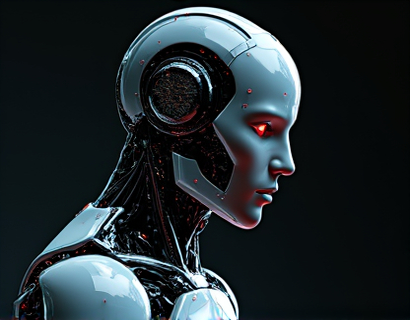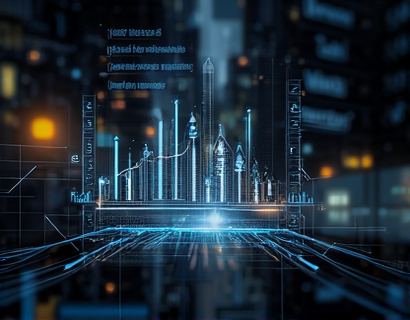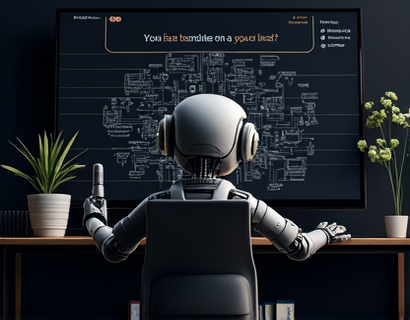Smart Appliances for the Modern Home: Embracing the Future of Living
In the rapidly evolving landscape of home technology, smart appliances have emerged as a pivotal element in transforming daily life. These devices, equipped with advanced connectivity and intelligence, offer unparalleled convenience, efficiency, and comfort. This article delves into the latest innovations in smart appliances, exploring how they can seamlessly integrate into modern living, making your home a smarter, more efficient space.
The Evolution of Smart Appliances
The concept of smart appliances is not new, but recent advancements have significantly enhanced their capabilities. Early smart devices were often standalone gadgets, but today, they are part of a cohesive ecosystem, communicating with each other and central hubs to create a unified smart home experience. This evolution is driven by improvements in IoT (Internet of Things) technology, artificial intelligence, and machine learning, which enable appliances to learn from user behavior and adapt to optimize performance.
Modern smart appliances range from refrigerators and ovens to washing machines and thermostats. Each device is designed to not only perform its primary function more efficiently but also to integrate with other smart devices, creating a network of interconnected tools that simplify and enhance daily routines.
Refrigerators: The Heart of Smart Kitchen Technology
Smart refrigerators are at the forefront of kitchen innovation. Equipped with touchscreens, these appliances serve as central hubs for smart home management. They can display recipes, manage grocery lists, and even order groceries online when supplies run low. Advanced models feature built-in cameras, allowing you to check the contents of your fridge from anywhere, ensuring you never run out of essential items.
Energy efficiency is another significant advantage. Smart refrigerators can adjust their settings based on usage patterns and external conditions, reducing energy consumption without compromising on performance. Some models even monitor food freshness, alerting you when items are approaching their expiration dates, thus reducing food waste.
Ovens and Ranges: Precision Cooking at Your Fingertips
Smart ovens and ranges bring the precision of professional kitchens to your home. These appliances can be controlled via smartphone apps, allowing you to preheat, adjust temperatures, and start cooking sessions remotely. Voice control integration with smart assistants like Alexa or Google Assistant adds another layer of convenience, making it easy to manage cooking tasks hands-free.
Features like automatic cleanup and self-diagnostics further enhance the user experience. Some models can detect when a cooking session is complete and automatically switch to a warm hold setting, ensuring your meal stays at the perfect temperature. Additionally, smart ovens often come with pre-programmed cooking modes for various dishes, making meal preparation simpler and more enjoyable.
Washing Machines and Dryers: Smart Cleaning Solutions
Smart washing machines and dryers are revolutionizing laundry routines. These appliances can be scheduled to run during off-peak hours, taking advantage of lower electricity rates and reducing your utility bills. They can also notify you when a cycle is complete or if there's a problem, such as a lint blockage or overflow, via your smartphone.
Load sensing technology ensures optimal water and detergent usage, saving resources and enhancing cleaning efficiency. Some models even offer stain detection, automatically adjusting the wash cycle to tackle tough spots. For those with allergies, hypoallergenic cycles and air filtration systems help create a healthier laundry environment.
Thermostats: Intelligent Climate Control
Smart thermostats are a game-changer for home comfort and energy management. These devices learn your temperature preferences and adjust the heating or cooling system accordingly, creating a personalized climate control experience. By integrating with weather forecasts, they can pre-adjust settings to maintain a comfortable home environment without unnecessary energy use.
Remote access through smartphone apps allows you to control your home's temperature from anywhere, ensuring you return to a comfortable home after a long day. Some models also offer energy usage reports, helping you identify patterns and make informed decisions to reduce your carbon footprint and save on energy costs.
Smart Lighting: Illuminating Your Life
Smart lighting systems offer unparalleled flexibility and energy efficiency. These systems can be controlled via apps, voice commands, or automated schedules, allowing you to adjust lighting based on your activities and preferences. Color-changing bulbs can set the mood for any occasion, from a cozy dinner to a vibrant party.
Energy savings are a significant benefit, as smart lights can be set to turn off automatically when rooms are unoccupied. Some systems even integrate with motion sensors, ensuring lights are only on when needed. This not only conserves energy but also extends the lifespan of the bulbs.
Security Systems: Protecting Your Home with Intelligence
Smart security systems have become essential for modern homes. These systems include cameras, door locks, and motion sensors that work together to provide comprehensive protection. High-definition cameras can be accessed remotely, allowing you to monitor your home in real-time from anywhere.
Smart locks offer enhanced security and convenience, enabling you to grant temporary access to guests or service providers without sharing physical keys. Integration with smart home hubs ensures all security devices work in harmony, sending alerts to your smartphone in case of any suspicious activity.
Voice Assistants: The Brain of Your Smart Home
Voice assistants like Amazon Alexa, Google Assistant, and Apple Siri are the central nervous system of smart homes. These devices can control multiple smart appliances, play music, set reminders, and answer questions, all through voice commands. Their natural language processing capabilities make interactions seamless and intuitive.
Smart speakers and displays serve as the interface for these assistants, displaying information and controlling connected devices. The integration of voice assistants with other smart devices creates a cohesive and user-friendly experience, making your home more accessible and convenient.
Benefits of Smart Appliances
The adoption of smart appliances brings numerous benefits to modern living. Convenience is a primary advantage, as these devices can be controlled remotely and automated to fit your lifestyle. This reduces the time and effort required for daily tasks, allowing you to focus on more important activities.
Energy efficiency is another significant benefit. Smart appliances optimize energy usage, leading to lower utility bills and a reduced environmental impact. By monitoring and adjusting settings based on real-time data, these devices help you save money and contribute to a more sustainable future.
Enhanced safety and security are also key advantages. Smart security systems provide peace of mind, knowing your home is protected 24/7. Additionally, features like fire and carbon monoxide detectors can send alerts to your smartphone, ensuring you're always informed about potential hazards.
Challenges and Considerations
While the benefits of smart appliances are clear, there are some challenges and considerations to keep in mind. Compatibility between different brands and devices can be an issue, although the industry is moving towards standardized protocols to address this. Ensuring robust cybersecurity measures is crucial, as connected devices can be vulnerable to hacking.
Cost is another factor, as high-end smart appliances can be expensive. However, the long-term savings on energy and maintenance often justify the initial investment. It's essential to research and choose devices that offer the best value for your specific needs and budget.
Future Trends in Smart Appliances
The future of smart appliances is exciting, with several trends on the horizon. One notable trend is the integration of AI and machine learning to create even more intuitive and personalized experiences. Appliances will become smarter, anticipating user needs and adapting to individual preferences without explicit commands.
Sustainability will continue to drive innovation, with a focus on energy-efficient designs and eco-friendly materials. The Internet of Things will expand, connecting more devices and creating a more integrated smart home ecosystem. Additionally, advancements in 5G technology will enhance connectivity, enabling faster and more reliable communication between devices.
Conclusion
Smart appliances are more than just gadgets; they are transformative tools that enhance the quality of life in the modern home. By embracing these innovations, you can create a more convenient, efficient, and comfortable living space. As technology continues to advance, the potential for smart appliances to improve our daily lives is vast, making them an essential consideration for tech-savvy homeowners.










































